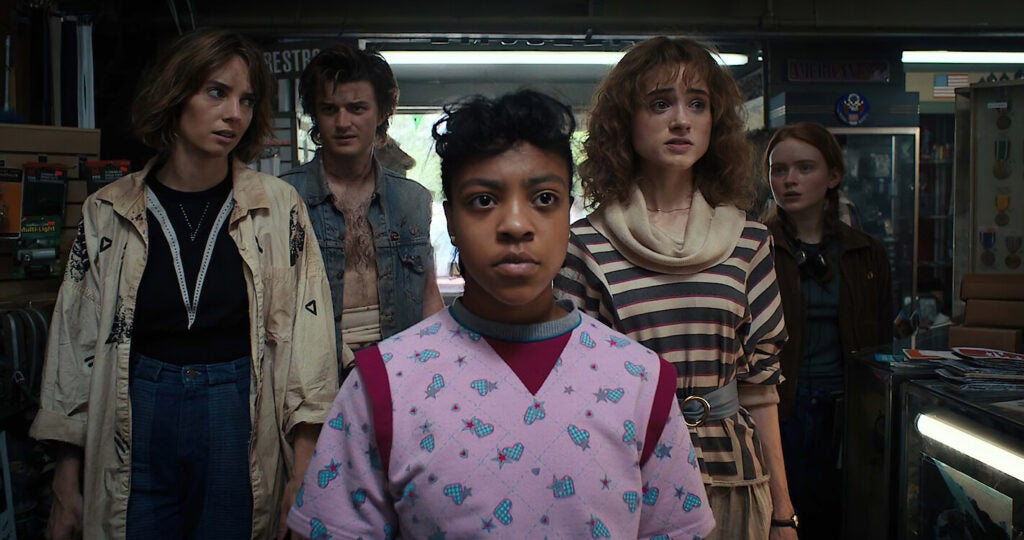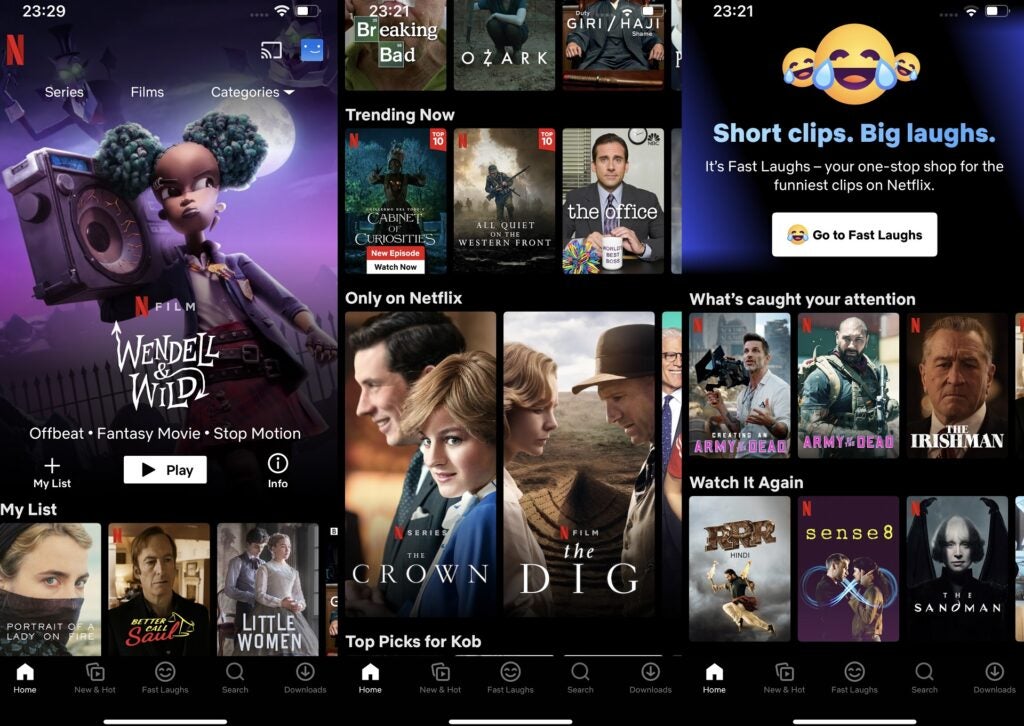Sound and Vision: Netflix’s new release model is a terrible idea

OPINION: Netflix has been causing quite a stir this week with its controversial plans to stop people from sharing their passwords but it’s another cheeky change that’s got me wound up.
Netflix popularised binge-watching, ditching the weekly release schedule used by traditional TV channels and instead dumping entire series on launch day for users to consume in a single evening if they so wish.
Almost all of Netflix’s biggest shows have been released this way, from the first three series of Stranger Things to The Witcher and Sex Education. It’s what the service is known for.
It seems however that Netflix might be edging towards a different future, one where a series drops in stages – rather than all at once.
The first look at this change was with the fourth series of Stranger Things: the first set of episodes had one release date, while the final two came a month later. It was a novel approach for the service’s biggest show and considering the sheer length of some of the episodes, the break towards the end was actually welcome.

A few months on and Netflix is tweaking its formula for the fourth season of You – another of its biggest hits. Instead of dropping all the episodes at once, we get five episodes now and another five next month.
To be completely blunt, I think this is a terrible decision and it completely misses the point of drumming up interest in a show. I am not wedded in any way to the binge-watching approach though and that’s not my issue with Netflix’s decision.
Shows like House of the Dragon and The Last of Us work wonderfully as weekly releases, building hype and creating conversation as the story unfolds. The same can be said of Severance on Apple TV – if this was released in one go, I doubt the slow-burn hype would have gained traction in quite the same way.

The problem is that by releasing five episodes, and then forcing everyone to wait a whole month for more kills any chance of weekly hype. I’ll likely watch those initial ones and move on to other things, likely forgetting what’s going on when the final set drop.
Other streaming services seem to have a better grasp on release methods than Netflix. Apple TV Plus, for instance, tends to launch a show with three or four episodes to get people interested and then move to weekly releases after that to keep that conversation going. Prime Video does a similar thing, but doesn’t shy away from dropping an entire series if it feels like a better approach for a particular programme – the latest series of Jack Ryan being a perfect example.
The reason for doing this is clear: keeping subscribers. If Apple TV Plus released the entire third series of Ted Lasso in one go, users could simply subscribe for a month, watch it all and then jump out before paying for a second month. By releasing it weekly you’re getting people paying for two, three or even four months. Netflix is clearly trying to stop users from paying for a single month by spreading its content out accordingly.
If Netflix released the new season of You on a weekly basis then it could have worked, keeping the show within the Top 10 charts for weeks – but by leaving a month’s gap between releases, I think the service has made a huge mistake that’s more likely to backfire.








